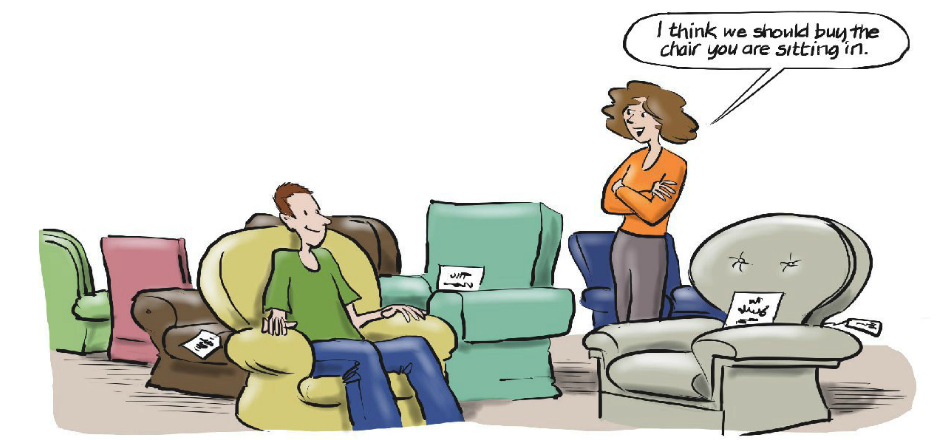
Ленинский пр-т, 32а

Vocabulary: Music
Listening: A music experience
Grammar: Defining and non-defining relative clauses
Reading: The three best music festivals
Writing skills: The structure of an article
Grammar
Defining and non-defining relative clauses
Defining relative clauses define a noun or make it more specific. They tell us which particular thing or what kind of thing. In defining relative clauses, we can also use that instead of who or which:
I love music that makes people dance.
I hate books which don't have happy endings.
My dad met the woman who reads the news on TV yesterday!
They're the couple that I told you about.
Non-defining relative clauses give extra information about a noun, but they are not necessary for the sentence to make sense:
The DJ was paying hip hop. (This sentence is complete.)
The DJ was playing hip hop, which is my favourite kind of music. (This relative clause adds more information.)
In writing, we need a comma before and after a non-defining relative clause. Don’t use commas in defining relative clauses.
We visited the market on a Sunday, when they sell clothes and jewellery.
I met Lucy, who was staying with relatives nearby, for a coffee.
In both types of relative clause, we can use who, which, whose, where and when:
Have you been to that restaurant where you cook your own food at the table?
Did you meet the girl whose father climbed Mt. Everest?
Omitting relative pronouns
We can often leave out who/which/that or when from defining relative clauses:
He likes the cheese (which/that) I bought. (I bought the cheese, cheese = object.)
Don't leave out the relative pronoun if it's the subject of the relative clause (who, which or that)
He likes the cheese that comes from Turkey. (The cheese comes from Turkey, cheese = subject.)
Never leave out the relative pronoun from a non-defining relative clause:
This cheese, which Greg realty likes, comes from Turkey.
NOT This cheese, Greg really likes, ...

Vocabulary
Music
|
album |
festival |
playlist |
Word-building (nouns)
-ance/-ence -(a)tion -er/-or -ity -ist -ness -ty
|
adjective |
noun |
verb |
|
artistic |
artist |
|
|
beautiful |
beauty |
|
|
celebration |
celebrate |
|
|
charitable |
charity |
|
|
creative |
creativity |
create |
|
cultural |
culture |
|
|
development |
develop |
|
|
happy |
happiness |
|
|
musical |
musician |
|
|
organised |
organiser |
organise |
|
performer performance |
perform |
Writing skills
Contrasting ideas
We can use however at the beginning of a sentence. It contrasts with an idea in the previous sentence.
I enjoy films. However, I think I prefer TV series.
We can use although and while at the beginning followed by a clause with a verb.
Although / While cinemas have become more comfortable, they're not as comfortable as my sofa.
We can use despite and in spite of at the beginning of the sentence to introduce a contrasting idea. They are followed by a noun or pronoun.
The price of cinema tickets has gone up recently. Despite / In spite of the cost, I still love the movies.